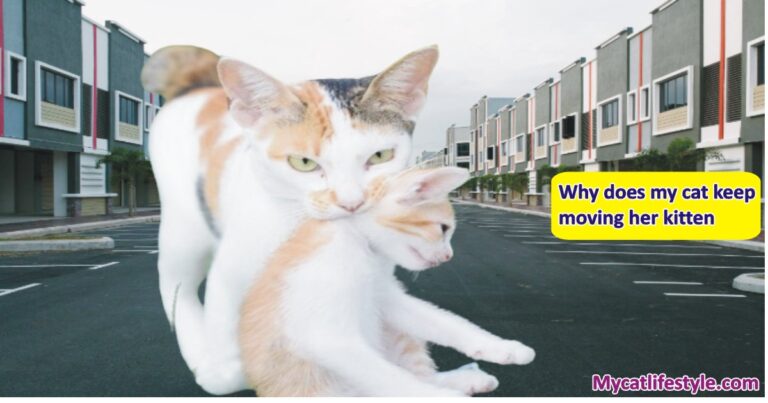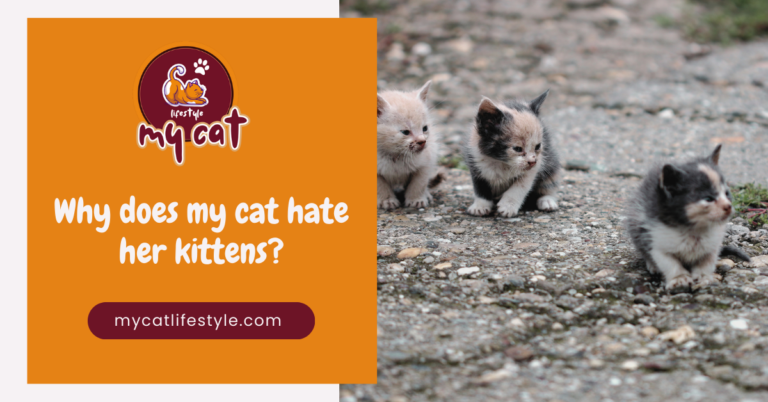My Cat Stopped Purring When I Got A New Kitten – Exploring
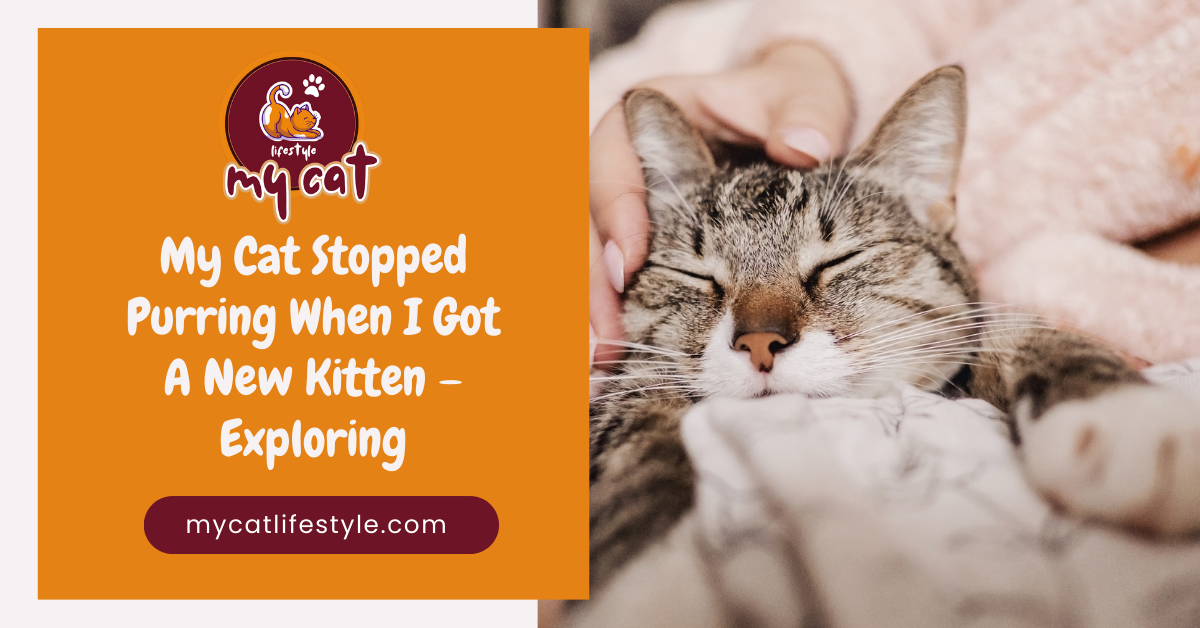
Have you ever noticed a change in your older cat’s behavior after bringing a new kitten into the mix? It’s not uncommon. In fact, one of the most telling signs is when your once purr-happy cat suddenly stops purring. This can be a bit disheartening, especially if those soothing purrs were a regular part of your bonding time. But don’t worry, it’s a scenario many cat owners face, and understanding the ‘why’ behind it is the first step to harmonizing your feline family.
The arrival of a new kitten is a big adjustment for your resident cat. It’s not just about sharing space; it’s about sharing your attention, their human, who they’ve likely had all to themselves until now. This shift can lead to stress, insecurity, and a range of behavioral changes, including a pause in purring. But fear not; with patience, understanding, and a bit of feline psychology, you can help your cats adjust to each other and restore peace – and purring – to your home.
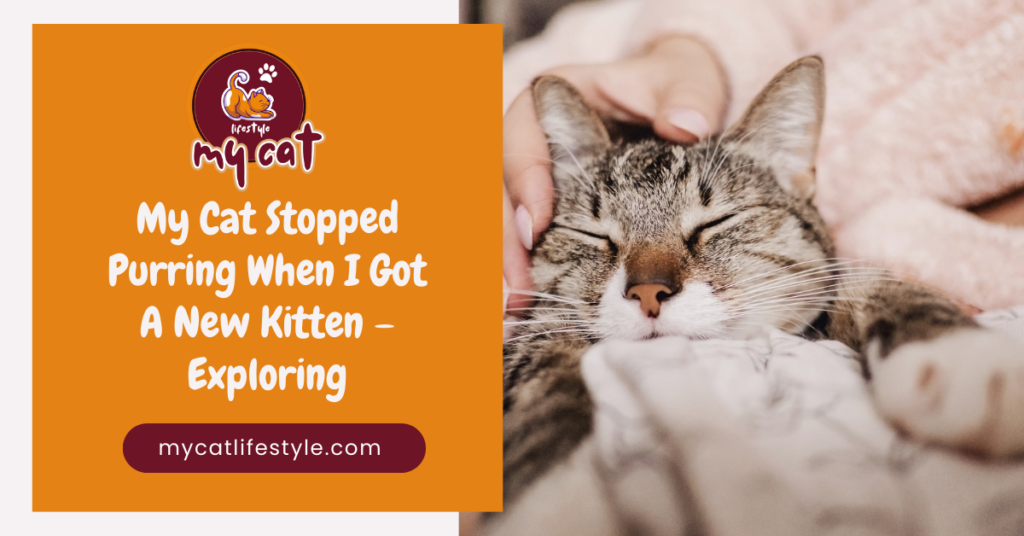
Why Did My Cat Stop Purring When I Got A New Kitten?
When you brought a new kitten into your home, your older cat’s world changed dramatically. It’s not just about a new playmate; it’s a whole new dynamic. Cats are creatures of habit and highly territorial, so introducing a new kitten can be quite disruptive to their routine and sense of security. Your older cat might be feeling threatened or stressed, wondering who this new little fur ball is and what it means for their place in the family.
The lack of purring, which is often a sign of contentment and comfort, might indicate that your cat is feeling unsettled or anxious. Purring isn’t just a sign of happiness; it’s also a self-soothing behavior cats use when they’re in pain or stressed. So, when that purring stops, it’s a clear signal that your cat is going through a significant emotional adjustment.
It’s also worth considering the shift in attention. Cats can get jealous, believe it or not. The time and affection you once devoted solely to your older cat are now shared with the kitten. This shift can lead to feelings of jealousy or neglect in your older cat, impacting their behavior, including their purring habits.
Remember, each cat’s reaction to a new kitten is as unique as their personality. Some might adjust quickly, while others take time. Understanding this is key to helping your cat through this transition. Let’s explore further how to help your cat change and bring back those comforting purrs.
Is It Normal for a Cat to Stop Purring Because of a New Kitten?
Absolutely, it’s standard for a cat to stop purring following the introduction of a new kitten. Cats are complex creatures emotionally, and changes in their environment or social structure can significantly impact their behavior. The arrival of a new kitten is a significant change, and it’s natural for your older cat to need time to adjust to this new family member.
In the feline world, the concept of territory and hierarchy is crucial. Your older cat may view the arrival of the kitten as an intrusion into their established territory. This can lead to stress, which in turn can affect behaviors such as purring. It’s not just about the physical space; it’s about the change in the social order and the potential competition for resources and attention.

Moreover, cats communicate and perceive the world differently than humans. While we might see the new kitten as a friend for our older cat, the older cat might see it as a competitor or even a threat. This perception can lead to stress, anxiety, or uncertainty, which might be why your cat has stopped purring.
Remember, just because your cat has stopped purring doesn’t mean they are unhappy forever. Cats are adaptable, and with the right approach, they can learn to accept and even enjoy the company of a new kitten. Patience and understanding are key here. By recognizing that this behavior is normal, you can take steps to help both cats feel more comfortable and secure, eventually leading back to a harmonious and purr-filled home.
How Can I Help My Cat and Kitten to Get Along?
Helping your cat and new kitten get along is a process that requires patience, understanding, and a bit of feline finesse. Here are some steps you can take to ease the transition and foster a positive relationship between them:
- Gradual Introduction:
- Controlled Meetings:
- Positive Associations:
- Provide Personal Space:
- Play and Exercise:
- Avoid Punishment:
- Patience is Key:
By following these steps, you can help your cat and new kitten develop a comfortable and affectionate relationship. Every cat is unique, so what works for one pair might not work for another. Stay observant, be adaptable, and, most importantly, be patient. With time and care, your cats can learn to live together harmoniously.
Is My Cat Mad at Me for Getting a New Kitten?
It’s a common worry among pet owners: “Is my cat mad at me for bringing home a new kitten?” The short answer is no; cats don’t feel anger towards their owners in the same way humans do. However, your cat might be experiencing stress or anxiety due to the new arrival, which can be misinterpreted as being mad at you.
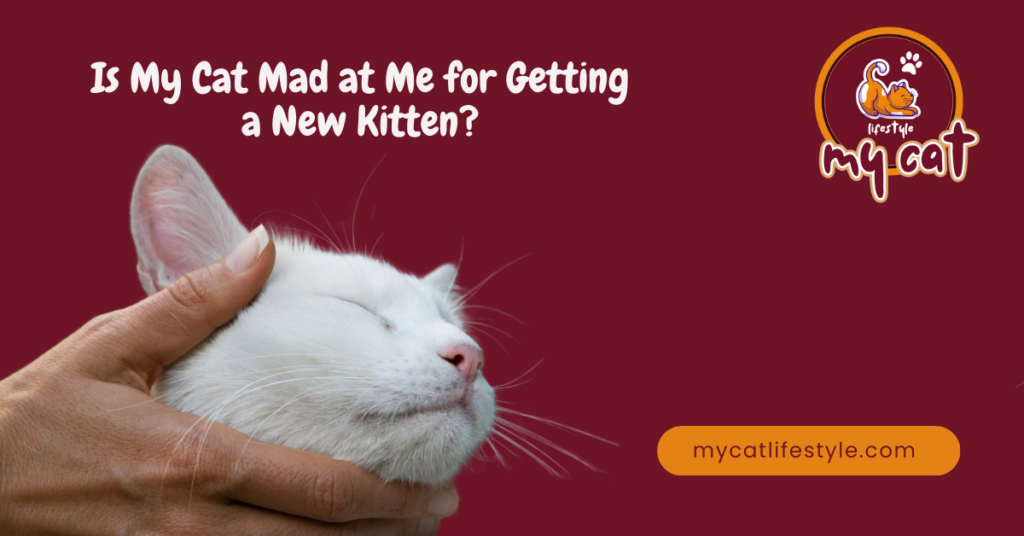
Cats are sensitive to changes in their environment and routine. The introduction of a new kitten is a significant change that can disrupt your older cat’s sense of normalcy and security. This disruption can manifest in behavior changes, such as hiding more, being less affectionate, or even hissing and growling. While these behaviors might seem like anger, they’re actually signs of discomfort or insecurity.
It’s important to understand that your cat’s world revolves around predictability and territory. The new kitten represents a shift in both. Your cat isn’t mad at you; they’re simply trying to adjust to the unique situation. They need time to understand that this change isn’t a threat to their relationship with you or their status in the home.
To help your cat adjust:
- Continue to give them plenty of love and attention.
- Stick to their routine as much as possible and reassure them with their favorite treats, toys, and cuddle sessions.
- Show them that the new kitten isn’t taking over their space or your affection.
With time and patience, your cat will understand that there’s enough love to go around, and their seeming ‘anger’ will likely dissipate as they get more comfortable with the new family member.
How Do I Know If My Cat Likes My New Kitten?
Determining whether your cat has warmed up to your new kitten can sometimes feel like trying to solve a puzzle. Cats communicate in subtle ways, but there are definite signs you can look for to gauge whether your cat is starting to accept, or even like, the new kitten:
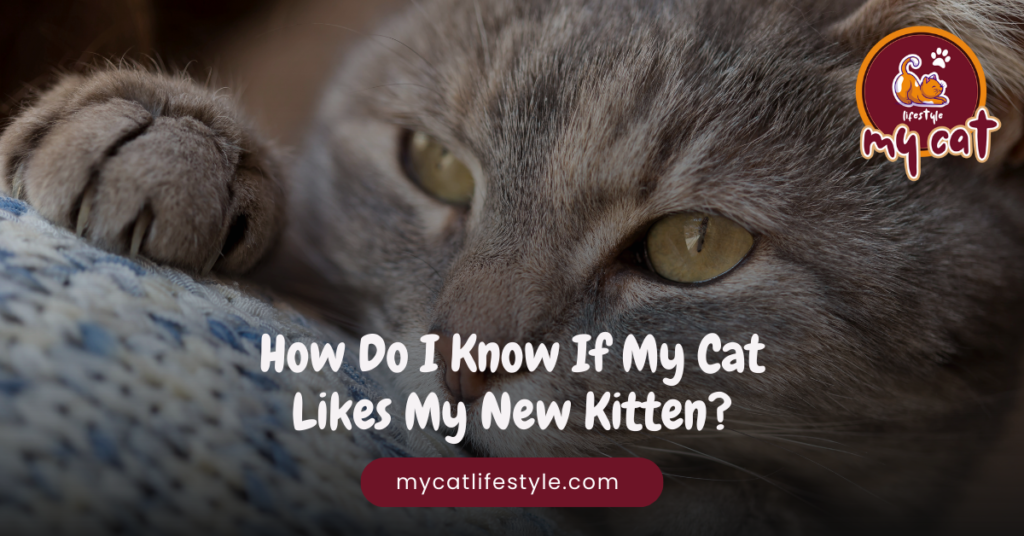
- Body Language
- Grooming Each Other
- Playing Together
- Sharing Space Peacefully
- Eating and Relaxing Together
- No More Hissing or Growling
Remember, every cat is unique, and the process of acceptance can vary significantly in time and manner. Some cats may quickly take to a new kitten, while others may take weeks or even months to accept them entirely. Be patient and continue to support their relationship by providing a positive and safe environment. The transition from tolerance to friendship can be gradual, but watching the bond develop between your cat and the new kitten can be a wonderfully rewarding experience.
Do Cats Ever Purr When Unhappy?
The short answer is yes; cats can indeed purr when they are unhappy or even in distress. While purring is often associated with contentment and happiness, it’s not exclusively a sign of joy or relaxation. The reasons behind a cat’s purr can be multifaceted and complex.
- Self-Soothing
- Pain Relief
- Communication
- Mother-Kitten Bonding
Understanding the nuances of your cat’s purring requires a bit of observation and knowledge of their usual behavior and environment. Suppose your cat is purring but also showing signs of distress, such as hiding, loss of appetite, or lethargy. In that case, it’s essential to consider these as potential indicators of discomfort or illness and not just contentment. When in doubt, a check-up with the vet can help ensure that your cat is healthy and happy.
What Happens If You Introduce Cats Too Quickly?
Introducing cats too quickly can lead to a range of behavioral and emotional issues that can be challenging to resolve. Cats are inherently territorial and sensitive to changes in their environment, making the introduction process critical. When cats are rushed into meeting each other without proper time to acclimate, it can result in heightened stress, fear, and aggression.
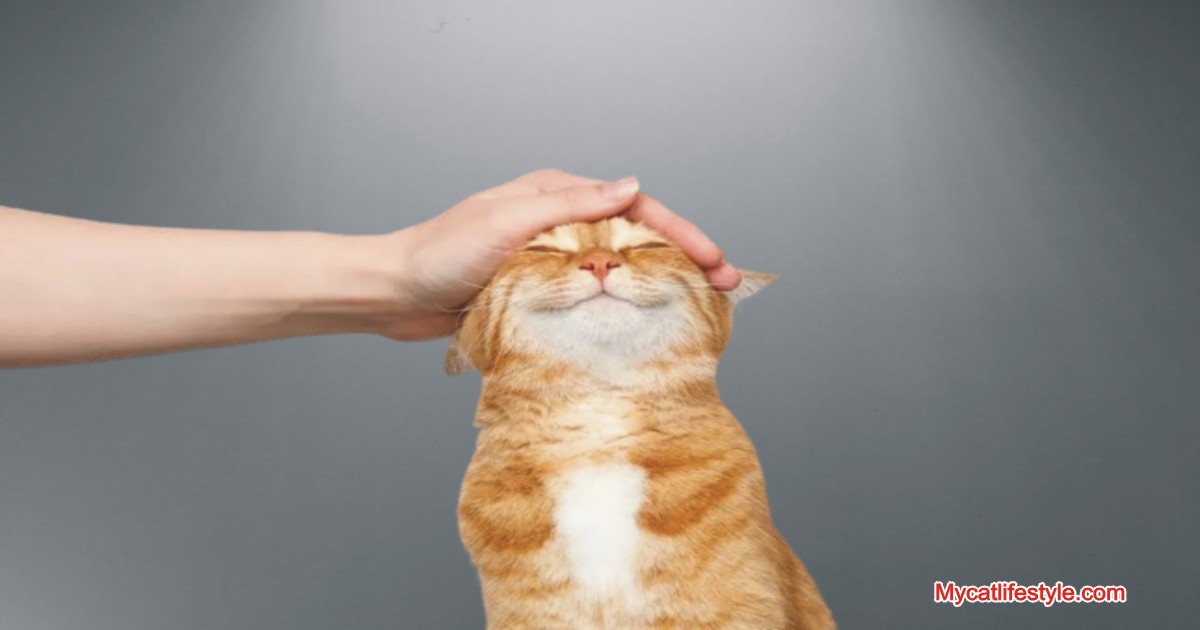
Firstly, immediate confrontation can trigger a fight or flight response. Cats, especially the resident cat, may perceive the new arrival as a threat to their territory and resources. This can lead to aggressive behaviors such as hissing, swatting, or even fighting. Such negative interactions early on can set a hostile tone for their future relationship, making it harder for them to get along down the line. Secondly, stress and anxiety are expected outcomes of a hurried Introduction.
This stress can manifest in various ways, including inappropriate urination, hiding, decreased appetite, or over grooming. Long-term stress can also lead to health issues like weakened immune systems or stress-induced cystitis. Moreover, a rushed introduction can damage the confidence of both cats. The new kitten might become fearful and apprehensive, while the resident cat might become more territorial and defensive. It’s crucial to remember that building trust and familiarity takes time. Each cat needs to feel secure in their environment and with each other, which can only be achieved through a gradual and patient introduction process.To avoid these issues, it’s recommended to follow a structured and slow introduction process, allowing both cats to adjust to each other’s scent and presence gradually. This approach helps to lay a foundation of curiosity and tolerance, rather than fear and aggression, leading to a more harmonious cohabitation in the long run.
Can Cats Get Depressed with a New Kitten?
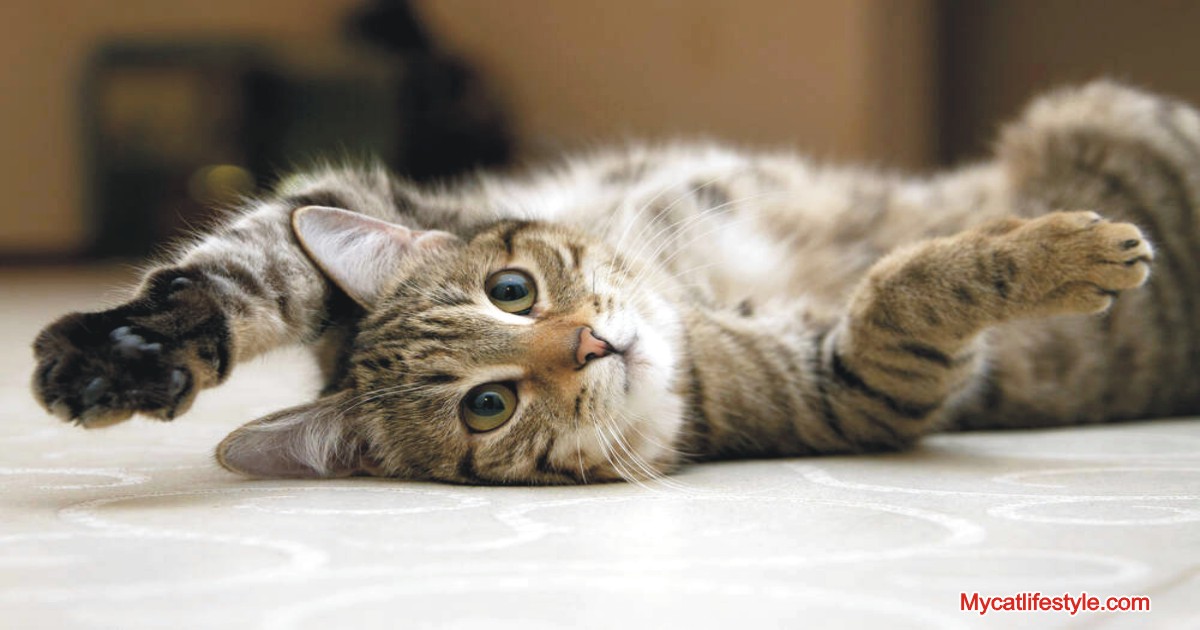
Yes, cats can experience a form of depression when a new kitten is introduced into their environment. While cats are often perceived as solitary creatures, they do form strong bonds with their human families and can be sensitive to changes in their household dynamics. The introduction of a new kitten can be a significant disruption, potentially leading to signs of depression in some cats. When a new kitten arrives, the resident cat may feel displaced or overshadowed, leading to feelings of neglect or jealousy. This emotional stress can manifest as behavioral changes that are often interpreted as signs of depression. These signs may include:
- Withdrawal:
- Changes in Appetite:
- Decreased Activity Levels:
- Alterations in Grooming Habits:
- Changes in Sleep Patterns:
Sleeping more than usual or in unusual places could be a sign of stress or depression. It’s important to recognize these signs early and take steps to reassure your resident cat. Maintaining their routine, providing them with ample attention, and gradually introducing the new kitten can help alleviate stress. If these behavioral changes persist or worsen, it’s advisable to consult with a veterinarian to rule out any underlying medical issues and to discuss ways to support your cat’s emotional well-being.
Are There Cats That Will Never Purr?
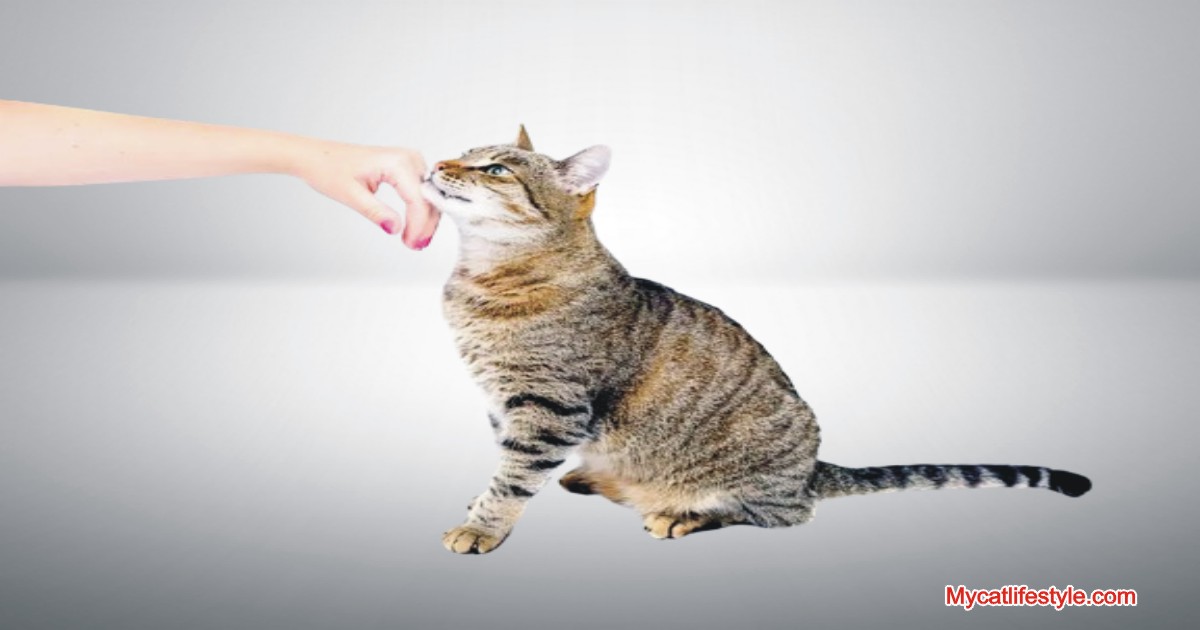
Purring is an expected behavior in cats, but interestingly, not all cats purr. While it’s rare, there are indeed cats that may never purr or purr so softly it’s barely noticeable. The reasons for this can vary and are often tied to the cat’s personality, past experiences, or even their breed.
- Personality Variations:
- Early Experiences:
- Breed Differences:
- Health Factors:
In some cases, a cat might not purr due to health issues. Respiratory problems, throat injuries, or other medical conditions can affect a cat’s ability to purr. If a cat who used to purr suddenly stops, it’s worth consulting a veterinarian. It’s important to remember that purring is just one of many ways cats communicate their emotions. A cat that doesn’t purr isn’t necessarily unhappy or unfriendly. They might be expressing their affection through other behaviors like rubbing against you, sitting on your lap, or bringing you “gifts.” Understanding and appreciating each cat’s unique ways of communication is part of the joy of living with these fascinating creatures.
Do Cats Get Tired of Purring?
It’s an interesting question: Do cats ever get tired of purring? Generally, cats don’t get “tired” of purring in the way humans might get tired of a repeated activity. Purring is a natural and intuitive behavior that cats start doing from a very young age. It’s not physically taxing for them, and they can sustain it for long periods without any sign of discomfort or fatigue. Purring is an involuntary reaction that can occur when a cat is content, relaxed, or even when it’s in pain or stressed, as a self-soothing mechanism.
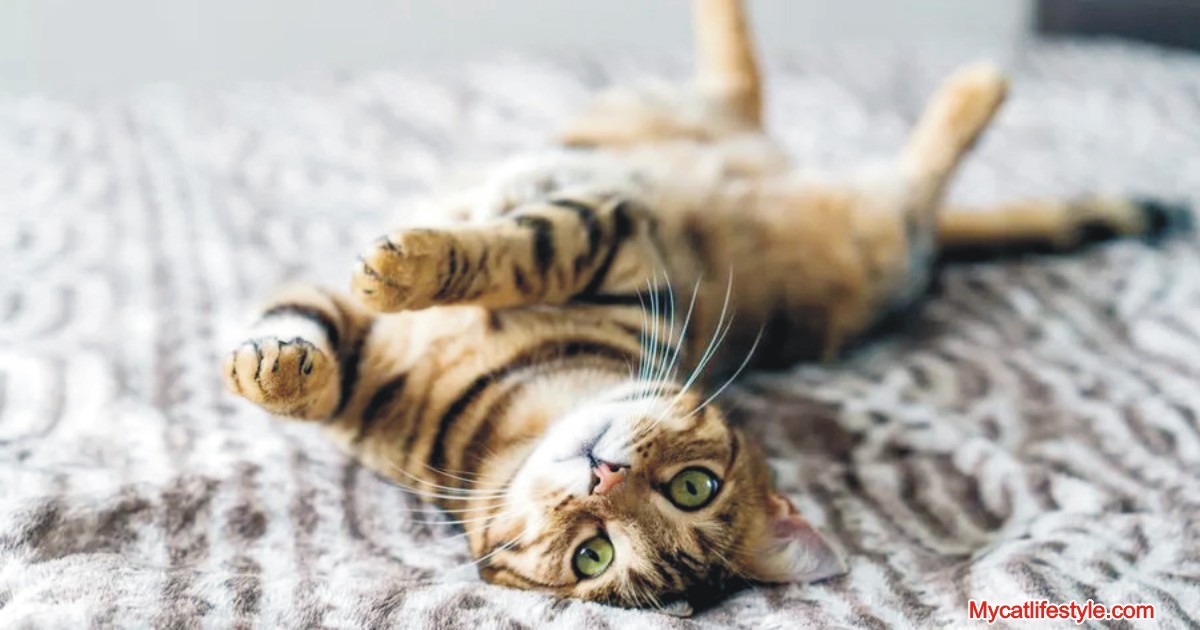
It’s generated by a neural oscillator in the cat’s brain. When the cat is in a state that triggers purring, the neural oscillator sends repetitive neural messages to the laryngeal muscles, causing them to twitch at a rate of 25 to 150 vibrations per second. This movement controls the opening and closing of the space between the vocal cords, creating the purring sound. Since purring is a low-energy activity and can be both comforting and healing (it’s believed that the frequency of a cat’s purr can promote healing and bone growth), it’s something cats can do for long periods without any adverse effects.
In fact, cats might purr while they’re resting or even while they’re asleep, which further suggests that it doesn’t require much effort or conscious thought. So cats don’t get tired of purring. It’s a a natural part of their behavior and a unique way they express various emotional states, from happiness and contentment to anxiety and pain. It’s one of the many charming and intriguing aspects of feline behavior that cat lovers so often adore.
Frequently Asking Questions
Do cats stop purring when they are dying?
Not necessarily Cats can continue to purr even when they are unwell or near the end of their Life. Purring can be a self-soothing behavior that helps them manage pain or discomfort. However, every cat is different, and some may become quieter as they near the end of their life.
Why is my cat not purring when I pet her?
There could be several reasons. Your cat might not be in the mood for petting, or they may not feel well. Some cats are less prone to purring than others. If this is a sudden change in behavior, it might be worth checking for other signs of distress or illness.
Do cats stop purring when they are sick?
Cats may or may not stop purring when they are sick. Some cats purr more when they’re unwell as a way to comfort them. If your cat’s purring habits change and they show other signs of illness, a vet visit is advisable.
Cat not purring and lethargic?
If your cat is not purring as usual and is also inactive, it could be a sign of illness or distress. Lethargy, in combination with a change in purring habits, warrants a veterinary check-up to rule out any underlying health issues.
Should I will be worried that my cat doesn’t purr.
Not purring in itself isn’t necessarily a cause for concern, as some cats are naturally less inclined to purr. However, if this represents a change from their normal behavior, especially if accompanied by other changes (in appetite, activity, etc.), it’s wise to consult a vet.
Why is my cat not purring anymore?
A change in purring behavior can be due to various factors, including stress, discomfort, or illness. If your cat has suddenly stopped purring and shows other behavioral or physical changes, a vet visit is recommended.
Older cat doesn’t purr anymore?
As cats age, their behavior can change. This might include purring less or not at all. However, it’s essential to ensure that this change isn’t due to pain or discomfort. A check-up with your vet can help ensure your older cat is healthy and comfortable.
Conclusion
As we conclude our exploration of why an older cat might stop purring after the introduction of a new kitten, it’s clear that this behavior is more than just a whimsical quirk—it’s a window into the complex emotional world of cats. The cessation of purring in this context is a communication tool, signaling discomfort or adjustment to the new family dynamics. This journey through feline behavior highlights the importance of patience and empathy in managing a multi-cat household.
It’s crucial to give your resident cat time to adapt to the new kitten, ensuring that both animals feel safe and secure. Gradual introductions, maintaining routines, and providing separate spaces can significantly ease this transition. Understanding that a cat’s purring can vary with its emotional state is critical. While often associated with contentment, purring can also be a coping mechanism for stress or discomfort. Observing your cat’s overall behavior and demeanor is essential in discerning the reasons behind changes in purring patterns.
Moreover, this situation serves as a reminder of the responsibilities that come with pet ownership. Being attentive to behavioral changes like a decrease in purring is essential, as it can indicate health issues or emotional distress. Regular check-ups with a veterinarian and being mindful of your cat’s emotional needs are integral to their well-being.
In essence, the introduction of a new kitten is not just a challenge but an opportunity to deepen the bond with your pets and understand their unique ways of communication. Each cat has its personality and coping mechanisms, and as their caregivers, it’s our role to support and nurture them through these adjustments. In creating a harmonious multi-cat home, we learn not just about the needs of our feline companions but also about patience, understanding, and the subtle art of caring for complex emotional beings. The reward is a household filled with diverse purrs and a deeper connection with our beloved pets.


